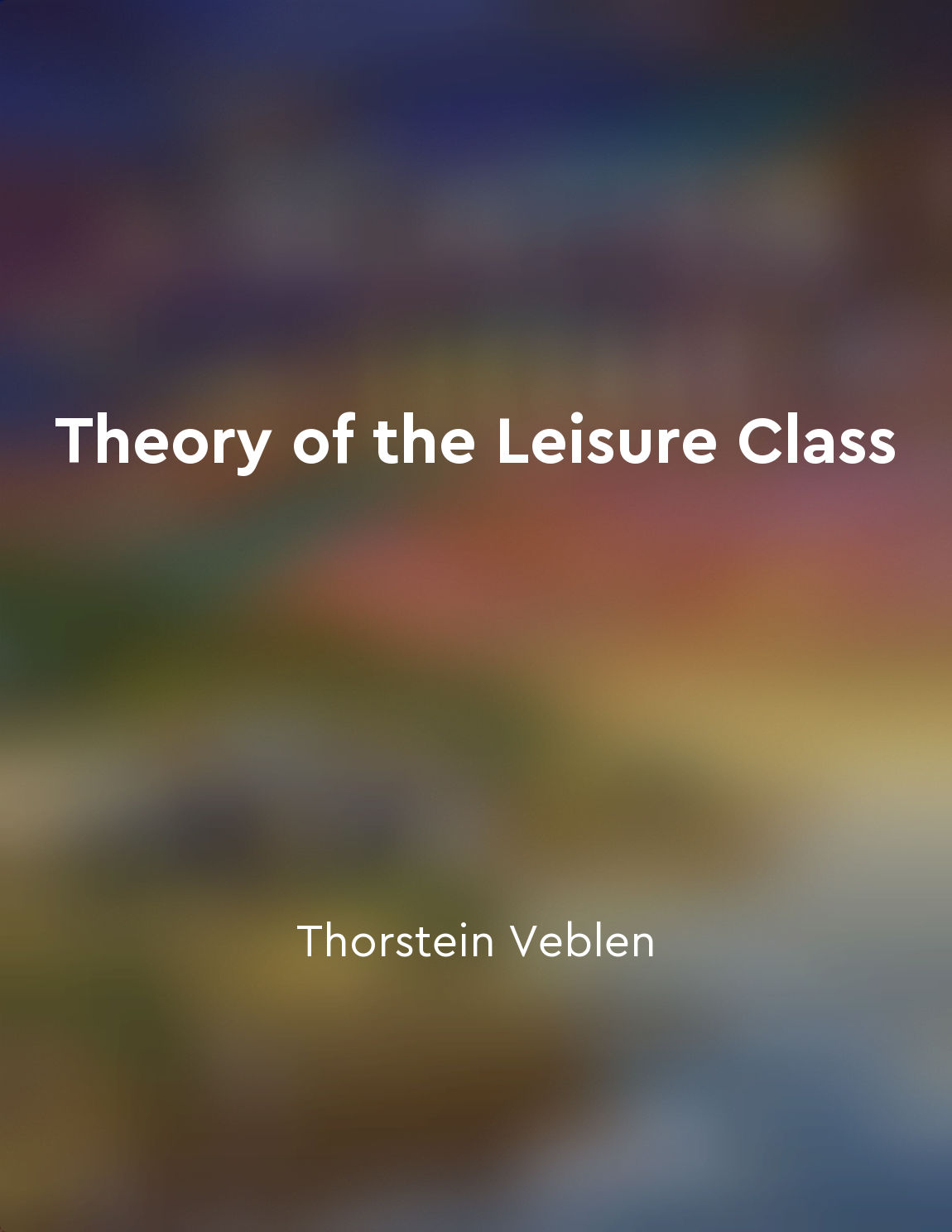Economic Disparity results in Mass Veblenian Envy from "summary" of Theory of the Leisure Class by Thorstein Veblen
The economic inequality that exists within society fosters a pervasive sense of dissatisfaction among the lower classes. This discontent stems from the stark contrast between the lavish expenditure of the leisure class and the limited resources available to those further down the social hierarchy. As individuals observe the extravagant displays of wealth exhibited by the elite, they experience a profound sense of longing and resentment. This phenomenon, known as mass Veblenian envy, is characterized by a desire to emulate the consumption patterns of the wealthy in order to attain a higher social status. The lower classes are acutely aware of the material possessions and leisure activities enjoyed by the leisure class, which serve as markers of prestige and social standing. In response, they seek to acquire similar goods and engage in comparable forms of conspicuous consumption as a means of signaling their own success and importance. The pursuit of status through material possessions perpetuates a cycle of competitive consumption that further exacerbates economic disparities within society. Individuals engage in a constant race to outdo one another in terms of the quality and quantity of their possessions, leading to escalating levels of expenditure and debt. This cycle of emulation and one-upmanship only serves to reinforce the existing hierarchy and widen the gap between the leisure class and the working class.- Mass Veblenian envy perpetuates a culture of conspicuous consumption that is driven by the desire for social recognition and status. The lower classes are motivated to consume beyond their means in order to project an image of success and affluence, even at the expense of their financial well-being. This cycle of emulation and competitive consumption serves to maintain the existing social order, as individuals continue to aspire to the lifestyle of the leisure class, perpetuating economic disparities and social inequality.
Similar Posts

Maximize utility from resources to increase savings
To achieve financial independence as quickly as possible, it is essential to make the most of the resources available. This mea...
Taste reflects one's habitus and socialization
Taste is not simply a matter of personal preference or individual choice. It is deeply intertwined with one's habitus and socia...
Money beliefs are learned from childhood
Our beliefs about money are deeply ingrained within us from a young age. We absorb attitudes and behaviors towards money from t...
Strive to emulate the habits and mindset of successful millionaires to achieve financial success
To achieve financial success, it is essential to study and adopt the habits and mindset of successful millionaires. These indiv...
Take responsibility for your financial decisions and actions
As individuals, we must understand that the path to financial success is not solely determined by external forces or luck. It i...

Ritualistic Etiquette distinguishes the Elite
The leisure class, in order to maintain their status and distinction from the rest of society, has developed a system of ritual...

The poor were left behind in a society obsessed with affluence
In the midst of the remarkable prosperity that has come to the United States, there lies a harsh reality that is often overlook...

Emulation drives Social Stratification
In the social structure of modern industrial communities, emulation plays a key role in determining the status of individuals w...
Economic capital is not the only factor determining social status
Economic capital, while undoubtedly important, is just one piece of the puzzle when it comes to determining an individual's soc...
Betrayal and disillusionment among the working class
The working class in America has been deceived and left in a state of despair. They toil day in and day out, only to be met wit...

